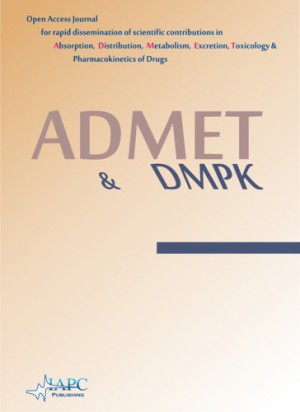
ADMET & DMPK
Yazarlar: ["Venkatesh Chunduri", "Srinivas Maddi"]
Konular:-
DOI:10.5599/admet.1513
Anahtar Kelimeler:2D In vitro,3D in vitro,ADME,Toxicology,Organoids,Micro-physiological systems
Özet: Drug discovery and development have become a very time-consuming and expensive process. Preclinical animal models have become the gold standard for studying drug pharmacokinetic and toxicity parameters. However, the involvement of a huge number of animal subjects and inter-species pathophysiological variations between animals and humans has provoked a lot of debate, particularly because of ethical concerns. Although many efforts are being established by biotech and pharmaceutical companies for screening new chemical entities in vitro before preclinical trials, failures during clinical trials are still involved. Currently, a large number of two- dimensional (2D) in vitro assays have been developed and are being developed by researchers for the screening of compounds. Although these assays are helpful in screening a huge library of compounds and have shown perception, there is a significant lack in predicting human Absorption, Distribution, Metabolism, Excretion and Toxicology (ADME-Tox). As a result, these assays cannot completely replace animal models. The recent inventions in three-dimensional (3D) cell culture-based assays like organoids and micro-physiological systems have shown great potential alternative tools for predicting the compound pharmacokinetic and pharmacodynamic fate in humans. In this comprehensive review, we have summarized some of the most commonly used 2D in vitro assays and emphasized the achievements in next-generation 3D cell culture-based systems for predicting the compound ADME-Tox.